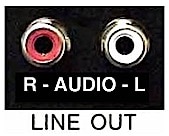By Chelle Wyatt
At a recent meeting of my local chapter of the Hearing Loss Association of America (HLAA), Susan Naidu, an audiologist at the University of Utah, spoke about auditory fatigue, also called listener fatigue or cognitive energy fatigue. According to Susan, this “real condition is not discussed or researched enough.” It isn’t clinically recognized but many professionals are familiar with it—and those of us with hearing loss certainly experience it on a regular basis.
Some people with hearing loss feel stupid when they don’t get all that’s said; they start tuning out. But the culprit can be auditory fatigue which occurs because of the “energy it takes to fulfill the complexity of listening, to help the brain comprehend what you’re listening to.” In his piece on ‘concentration fatigue’, Ian Noon wrote on Limping Chicken, “I went to a great conference today. It was riveting and I was hooked on pretty much every word. And then I got home and collapsed on the sofa. I’m not just tired, I’m shattered. I’ve had to turn my ears off to rest in silence and my eyes are burning. I’ve also had about 3 cups of tea just to write this paragraph.”
Susan introduced us to Kathleen Pichora-Fuller’s work on hearing loss and cognitive energy. In the abstract, Kathleen asks: “How can audiologists better understand and find ways to counteract the factors underlying why listeners may decide to quit participating in activities because it takes too much effort to listen? How can audiologists help listeners to strategically deploy their available cognitive capacity in situations where it is hard to listen? How can audiologists prevent listeners from avoiding situations and withdrawing from social participation because it is too hard to listen?
It has often been stated that we hear with our ears, but we listen with our brains. In this consensus article, we build on the importance of auditory-cognitive connections by adding ‘and when and how much effort we expend during listening in everyday life depends on our motivation to achieve goals and attain rewards of personal and/or social value’.”
Listening takes effort. We have to pull all the components together, including our hearing, to communicate properly. We must be able to understand language, generate an appropriate response and keep the conversation going back and forth. ‘Hearing’ people can do this while multitasking (washing the dishes, watching TV) but for people with hearing loss, listening requires more focus and effort, because we’re also visually decoding the message with speechreading and quickly trying to fill in blank spots in words and conversations. Our mental process is “I’m not hearing well enough. I have to do something and physically push the brain to listen better.” And after an hour (or less) of this, we are tired and experience discomfort, pain and numbness.
Noise makes listening even more difficult; it’s the number one complaint from Susan’s clients. Trying to filter and ignore noise is a challenge for anyone, but especially so for people with hearing loss. Even with modern hearing technology such as directional microphones and noise reduction programs, noise remains a problem in situations like restaurants, traffic and group conversations.
Spending this extra cognitive energy affects our ability to remember things; with so much going on in the mind, it’s tough to find a place to stash the information. (And if we can’t recall a name, we may not have caught it completely in the first place.) In meetings, we are so intent on understanding the words as they are said, that we may not retain of the meeting’s information. Because of this intense concentration, some hard of hearing employees end up taking more sick days. The mental stress affects them to the point of illness. Workers may also recuperate by avoiding evening and weekend social activity. To avoid auditory fatigue, it’s tempting to avoid going to that party, the play or lecture and stay home and watch TV with captions.
In his study, Effort and Displeasure in People Who Are Hard of Hearing, Mohan Matthen at the University of Toronto looks at why some hard of hearing people are more successful at socializing than others, and suggests that audiologists should focus on training their clients to pursue listening enjoyment to reduce stress and difficulty. Make the reward “I will understand.”
What Helps Combat Auditory Fatigue?
Understanding and advocating for what is needed is important. What do you need to make this meeting better? Live captioning (CART)? Sitting closer to the presenter? Assistive listening devices? One speaker at a time? Don’t talk while multitasking? Plan ahead to put strategies in place.
- Think about the environment, talk to the event coordinators, find out if the venue has assistive listening devices such as the CaptiView at theaters or live captioned performances.
- Express your listening needs: face me, speak up, slow down, etc.
- Develop speechreading skills to help reduce fatigue.
- Talk with only one or two people at a time.
- Speak in a quiet room with family members at large gatherings.
- Ask for background noises (music or TV) to be turned down or off.
- At work, avoid noisy employee environments.
- Take hearing breaks—read instead of watching TV.
- Arrange for hand signals when conversation needs to be slowed down or when wanting someone to talk louder.
I don’t often shy away from social situations unless I’m already tired. From experience, I know I won’t have the necessary energy to make the best of the situation. Knowing when to stay home has saved me a few meltdowns. I also know when I need CART and when assistive devices will work (or not).
Advocating for myself has made a tremendous difference in reducing auditory fatigue and increasing my social pleasure.

Chelle Wyatt has been hard of hearing most of her life, developing tinnitus at 18 and started wearing hearing aids at 23 years old. Twenty five years later she’s still at it and learning things.
Editor’s Note: This article by Chelle Wyatt has been adapted with permission from her original article.







